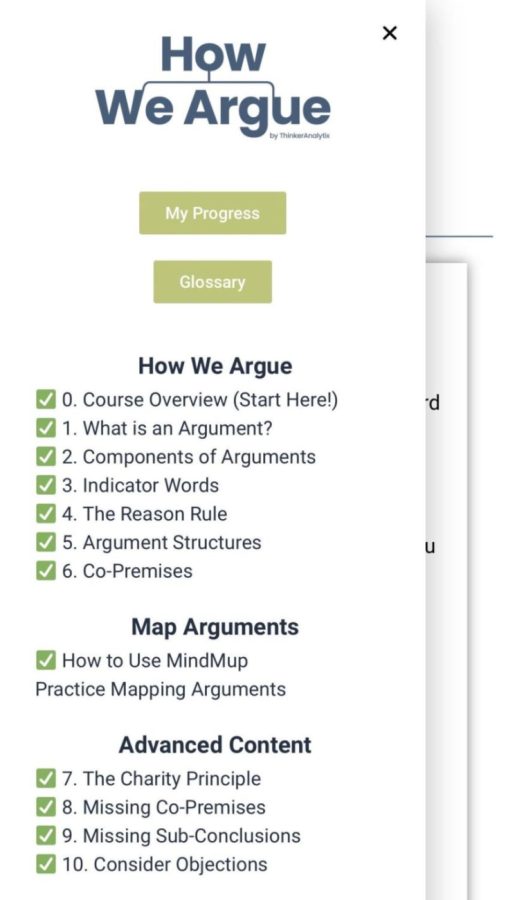It’s no question that disagreements are a part of people’s daily lives. Arguments are everywhere, from kids fighting over toys, to adults fighting about politics.
But in AP Language and Composition classes at PV, arguments have become something deeper than just a back and forth rift.
Students, for ten weeks, learned how to map an argument and understand how an argument is formed through an application called Thinker Analytix.
AP Language and Composition teacher Dr. Lynne Lundber, sees great value in teaching students these skills. “By learning argumentation skills, students are better able to think critically about the arguments they encounter in their academic pursuits and in their personal lives. They are also able to build arguments that are sound, persuasive, and ethical. As critical thinkers, students can engage with one another and with media messages from a position of understanding. A society of critical thinkers can deal with controversy without demonizing one another and without resorting to polarized positions. Individuals who can think critically are better prepared to deal with interpersonal differences as well as public issues,” stated Lundberg.
In a time where political polarization is dividing the country more than ever, understanding others’ beliefs and understanding where they are coming from is crucial.
Thinker Analytix teaches students how to put together a strong argument backed by evidence, and it also breaks down arguments into smaller components such as claims, premises, co-premises, sub-premises and objections.
“The Thinker Analytix program gives students clear terminology to break down arguments. Even before students had the opportunity to complete the program, I began noticing students discussing issues using the Thinker Analytix terms. This may seem to be a small thing, but being able to label elements of an argument is an essential step in being able to understand that argument’s merits and deficiencies,” continued Lundberg.
In addition, Thinker Analytix also teaches students about the charity principle, which is key when analyzing controversial arguments. The charity principle encourages students to comprehend an argument the most charitable and rational way.
Lundberg considers the Charity Principle a need for our society. “That principle, which gives us tools to avoid polarization and focus on discussing issues in good faith, is essential if we are to become a society that sees past labels like Republican and Democrat, a society in which citizens can work together for the good of all,” Lundberg continued.
Junior Celia Brown feels that the Thinker Analytix courses have been very helpful in her own life as well. “ I think I have learned to be more charitable with other people’s arguments, like not jumping to conclusions or assuming without hearing their entire argument. I’ve also learned that some people’s opinions/morals don’t change after an argument, and that can be normal. I also think that learning about missing co-premises has helped me examine gaps in my arguments in essays,” Brown stated.
The ten weeks of Thinker Analytix courses that students completed have provided them with crucial, long-lasting information that will help them both in and out of the classroom.









